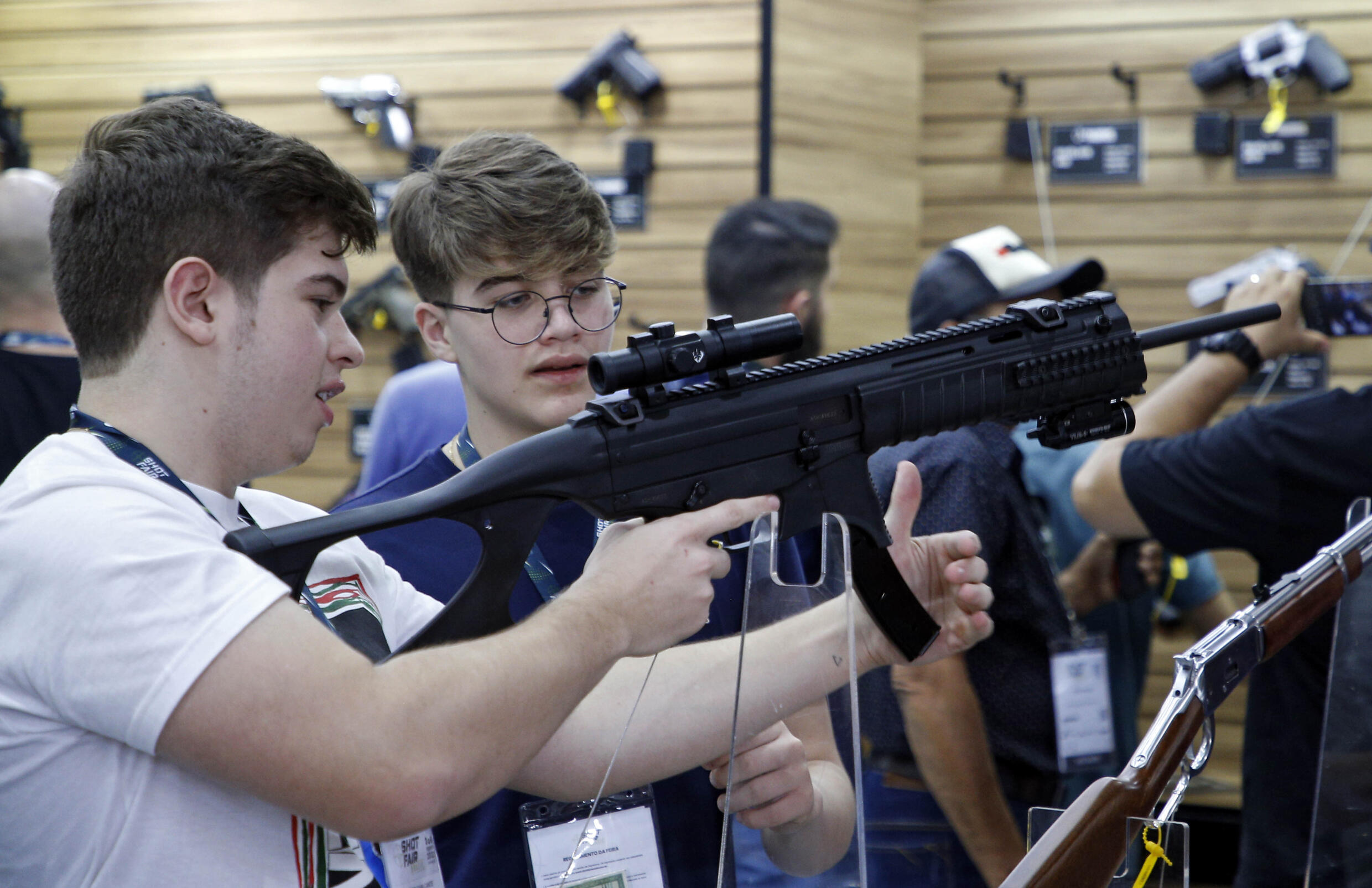First modification: Last modification:
Rio de Janeiro (AFP) – Elitusalem Gomes Freitas rejoices in the sweet aroma of burning gunpowder: with a powerful 40-caliber rifle, he hit the target in a shooting club in Rio de Janeiro, one of the many that flourished in Brazil during the Government of Jair Bolsonaro.
Wearing a skull and the name “Bolsonaro” on his shirt, this former police officer reiterates one of the pro-arms president’s maxims: “An armed people will never be enslaved.”
With his decrees that facilitated their access, the extreme rightist jumped from 117,000 to more than 673,000 the registry of hunters, sports shooters and collectors, a category that already outnumbers the ostensive police officers (406,384).
So many weapons in the hands of the population even raised fears ahead of the October 2 elections, to the point that the Supreme Court temporarily suspended several of the new purchase facilities.
“Cursed Inheritance”
“Today a civilian can buy more powerful weapons than those of the police themselves,” says Bruno Langeani, author of the book ‘Firearm in Brazil: trigger of violence’.
“And for Hunters, Sports Shooters and Collectors (CACs, for its acronym in Portuguese) the privileges are even greater: in some cases the purchase of up to 60 weapons per person was released and 30 could be assault rifles,” he explains.
The NGO Brazilian Forum of Public Security calculates that there are about 4.4 million weapons in private hands in Brazilcountry of 212 million inhabitants.
This includes those of the CACs, weapons at home for personal defense and other categories such as public officials, businessmen, or weapons for private use by members of the security forces.
And a third of them (1.5 million) have expired registration.
“We generated a stock that will be a cursed inheritance for the next generations”, defends Langeani.
Contrary to the general number of homicides, which in 2021 fell 13%, murders with pistols and revolvers increased 24% last year, according to data from the Ministry of Health.
While experts link this increase to a greater circulation of weapons, the Government maintains that there is a lack of data to establish this relationship.
“Good citizen”
For former police officer Gomes Freitas, having weapons is a matter of individual freedom and national sovereignty.
“It’s not about arming everyone, but about allowing good citizens to train and have access to a firearm,” says this corpulent man, who pierces a white paper silhouette with his ammunition, suspended in front of a wall of logs. of eucalyptus that cushion the shots in the Mil Armas club of Nova Iguaçú, metropolitan region of Rio.

Echoing Bolsonaro’s insinuations that opposition forces infiltrated the Superior Electoral Court (TSE) could commit fraud in the election in October, Gomes Freitas says he is ready to take action.
“I cannot admit that half a dozen people (the TSE judges) choose the destiny of the nation, contrary to what the people voted for. The weapons are also to guarantee that freedom, that defense of national sovereignty against the internal enemy.”
Although he believes that this is a minority discourse, Langeani maintains that “even a radicalized minority can cause very great damage”, as happened during the invasion of the US Capitol.
A “shopping” of weapons
Since Bolsonaro came to power in 2019, some 1,000 shooting clubs were opened in Brazil until last May, according to Army data cited by the ‘UOL’ portal.
“When the government facilitated access to weapons, I told myself that we had to follow that,” former federal police officer Marcelo Costa, president of the Mil Armas club, which opened four years ago, told AFP.
The enclosure, which is accessed through an anteroom where handling weapons is prohibited, has strict security regulations. Costa runs the establishment with his two sons in their twenties, who also practice shooting. His wife is a psychologist authorized by the authorities to evaluate rookies.
Members also have instructors and legal advice to obtain their license. And they can use the club’s weapons or buy their own.
“It’s like a shopping mall, we have everything,” summarizes Costa, proud of selling weapons “in up to 12 installments without interest” to those who can’t pay them in cash: “They cost between 5,000 (USD 950) and 20,000 reais (USD 3,800)” .
Langeani, who is also a member of the NGO specializing in security Instituto Sou da Paz, warns for his part of the “risk” that these weapons end up in the hands of militias and drug traffickers, as recently shown by the case of a collector imprisoned in Rio with 60 legally acquired weapons destined for the powerful Comando Vermelho criminal gang.















Add Comment